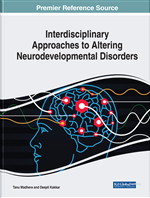Latest Treatment for Neurological Disorders

treatment for neurological disorder is a complex process. As of now, there is no one-size-fits-all treatment for neurological disorders as the efficacy and outcome vary from patient to patient. Nevertheless, various treatments like medications, physical therapy, occupational therapy, and support devices can be used to manage its symptoms.
Medication
Medications are commonly prescribed to treat neurological disorders, particularly those involving seizures, migraine, Parkinson’s disease, and multiple sclerosis. Anti-seizure drugs such as carbamazepine, levetiracetam, and clonazepam may reduce the frequency of episodes in some people. Similarly, acetaminophen, ibuprofen, and opioids may be prescribed for headaches, while dopamine agonists like ropinirole and pramipexole are prescribed for controlling tremors associated with Parkinson’s disease.
Physical Therapy
Physical therapy is an important part of the treatment for neurological disorder. People with mobility or balance problems due to a stroke or cerebral palsy may benefit from exercises designed to strengthen muscles and improve coordination and balance. Other therapies such as hydrotherapy and massage may also help reduce pain and restore movement.

Occupational Therapy
Occupational therapy helps to improve activities of daily living that may be affected by the neurological disorder. This includes helping individuals to adapt to their environment by introducing assistive devices or techniques to perform usual tasks. Occupational therapists may suggest changes in home or workspace to make it easier for the individual to move around and complete tasks independently.
Support Devices
People with neurological disorders may need assistance from support devices such as wheelchairs, bracing or splinting, communication aids, or adaptive equipment. Canes, walkers, crutches, and scooters can make it easier for someone with difficulty walking to maintain balance and stability when moving about. Meanwhile, communication aids such as computer software, voice synthesizers, and text-based communication systems can be very helpful for those dealing with speech problems.
Psychological Counseling
Along with medical intervention, psychological counseling is often recommended for treating neurological disorder. This type of counseling focuses on providing emotional support, managing stress, and learning how to cope with the illness. It also helps in addressing issues related to quality of life and mental well-being. Proper psychological counseling aims to improve psychological functioning and quality of life of people with neurological disorder.
Alternative Medicine
There is evidence that suggests certain practices, such as yoga, mindfulness meditation, and acupuncture can be beneficial in treating neurological disorder. Although alternative medicine has yet to be accepted as a mainstream therapy for neurological disorders, research does indicate that these approaches may offer some benefits in relieving symptoms and improving overall well-being.
Nutrition and Diet
Good nutrition is essential for anyone dealing with a neurological disorder. A proper balanced diet is key for helping to control symptoms of the disorder such as fatigue and nervousness. Furthermore, certain nutrients found in food such as omega-3 fatty acids, vitamins B12, C, and E, are believed to help reduce inflammation, decrease oxidative stress, and provide other cognitive and behavioral benefits. Therefore, eating a healthful diet can play an important role in managing neurological disorder.
